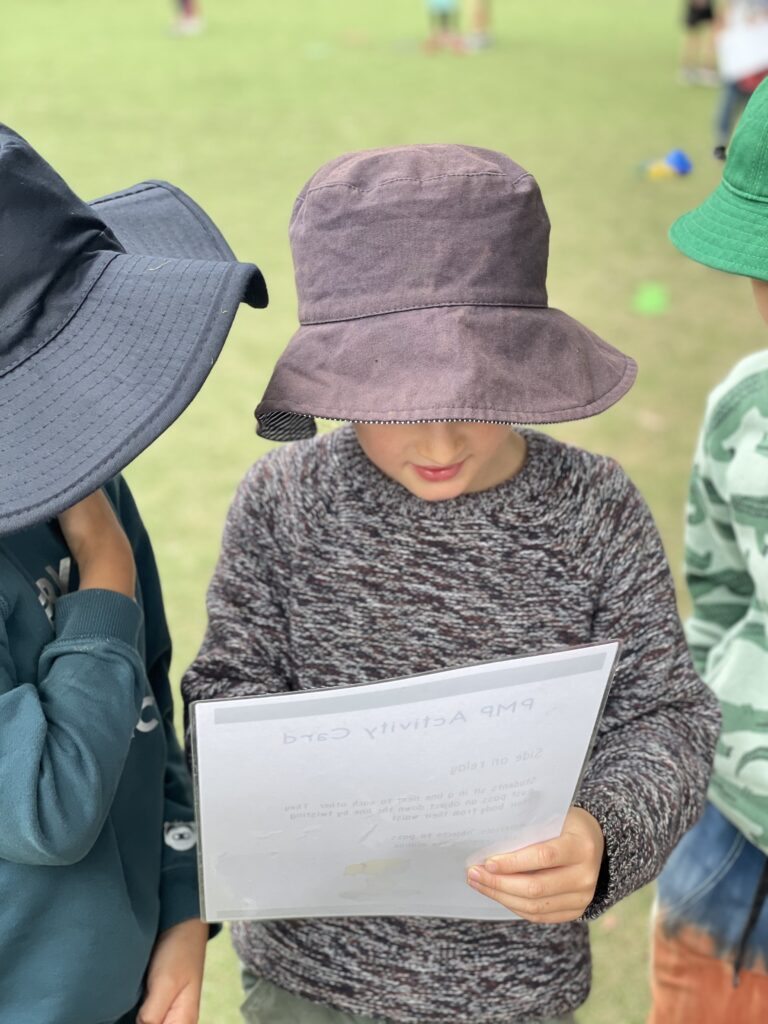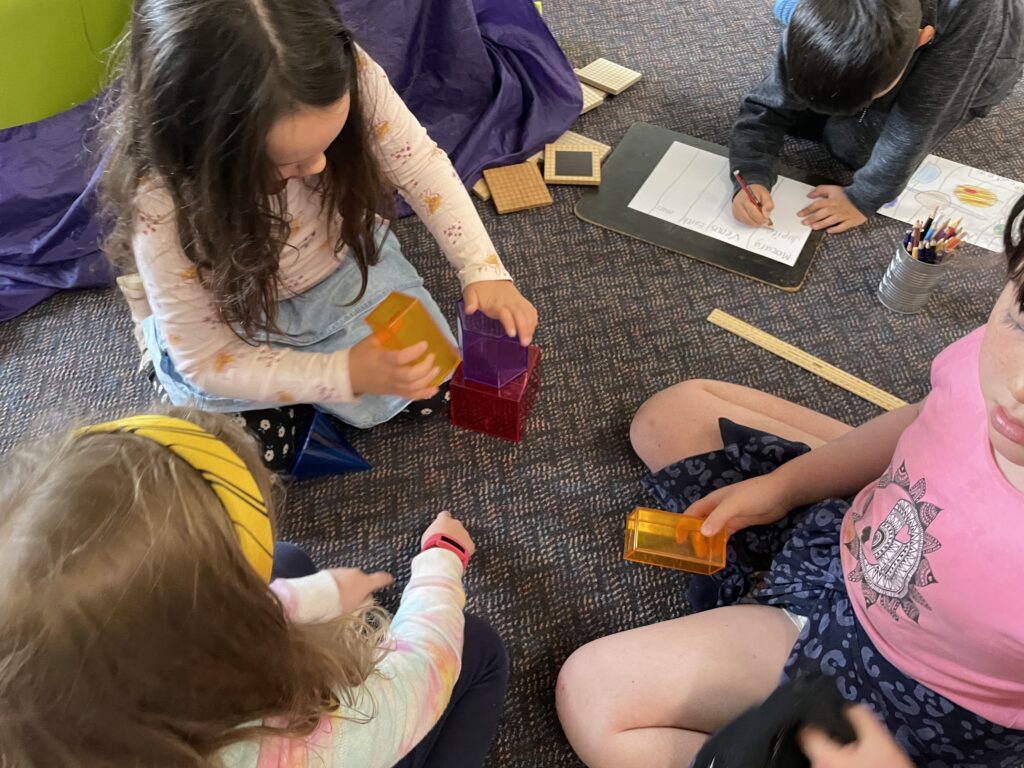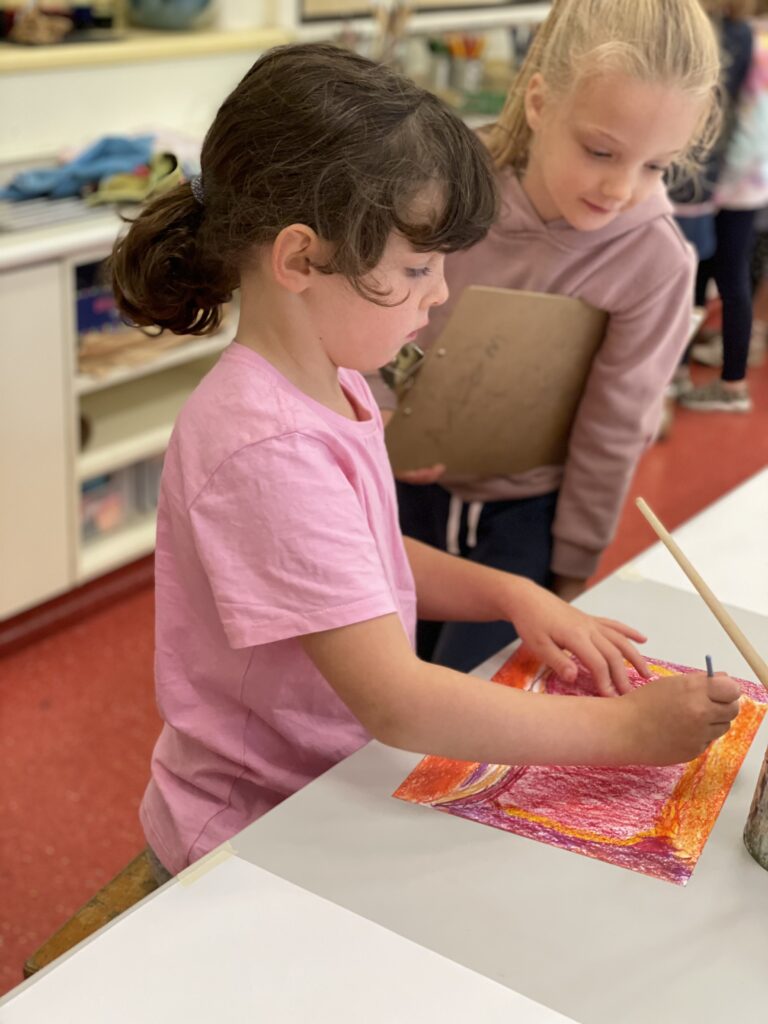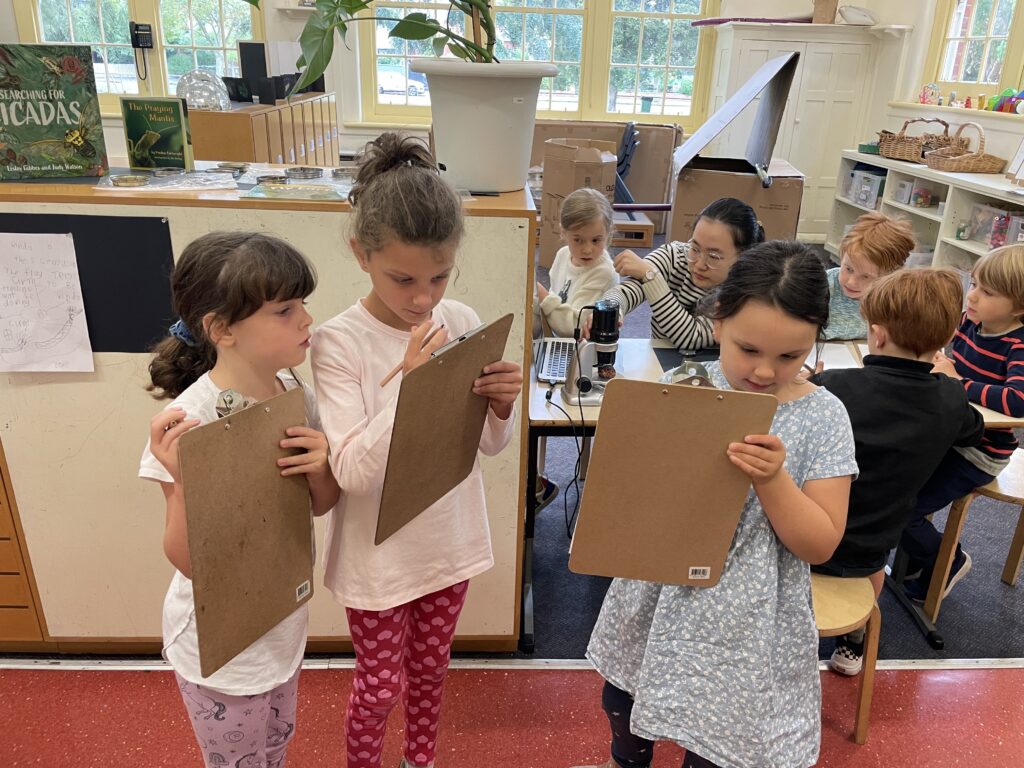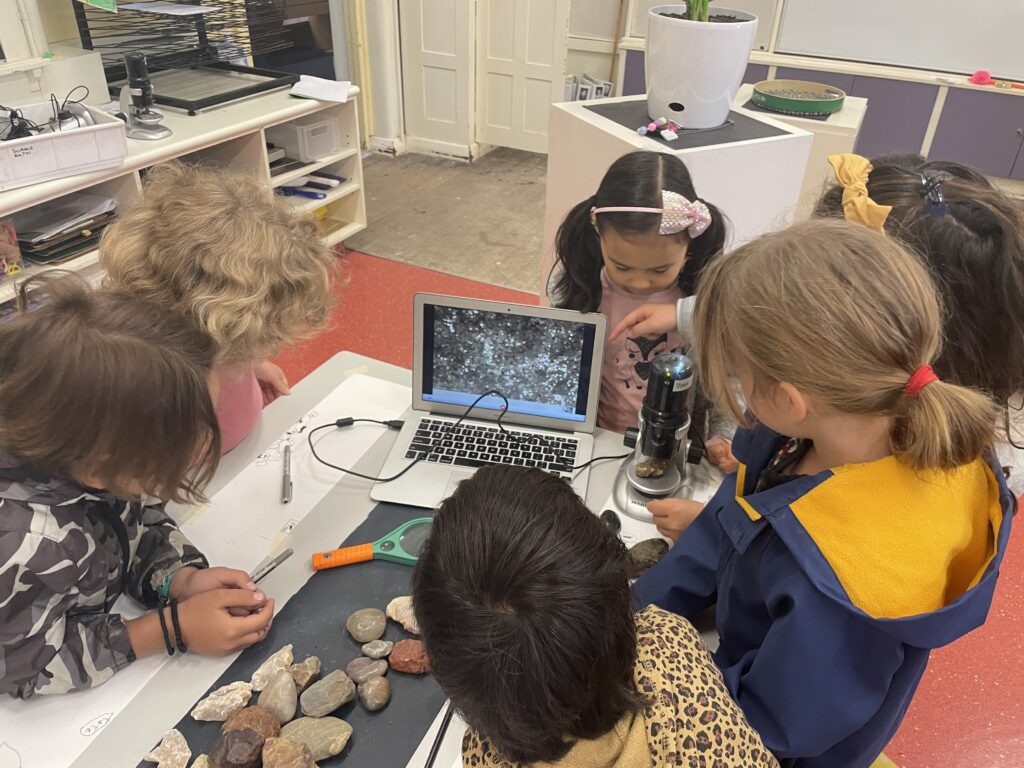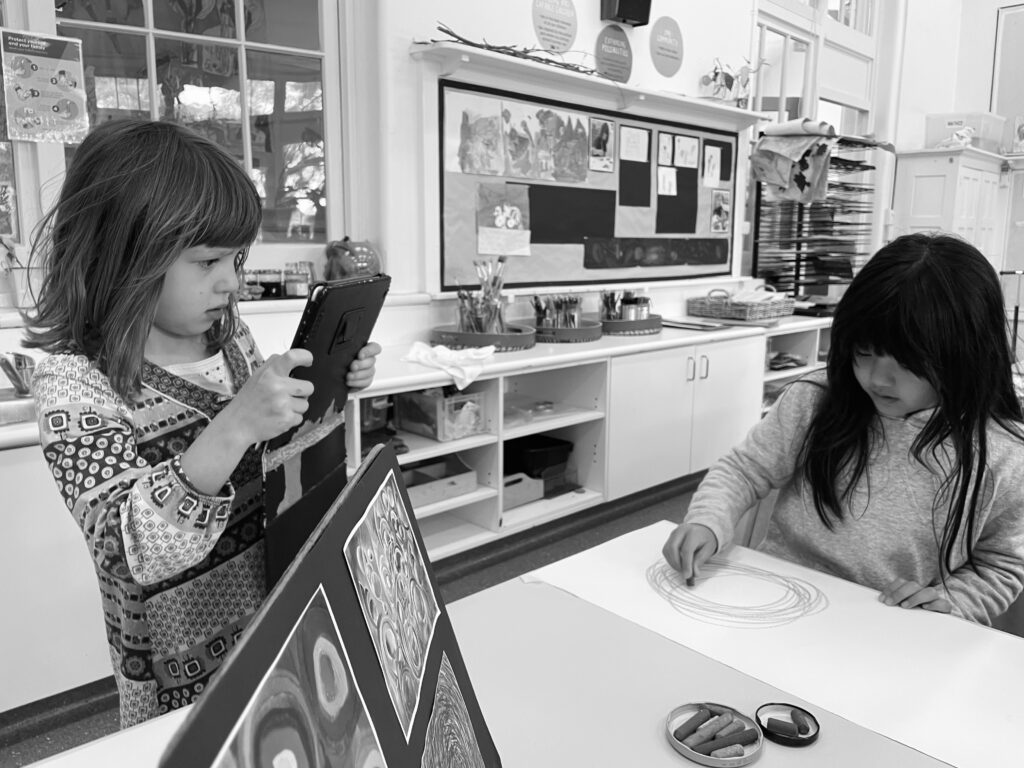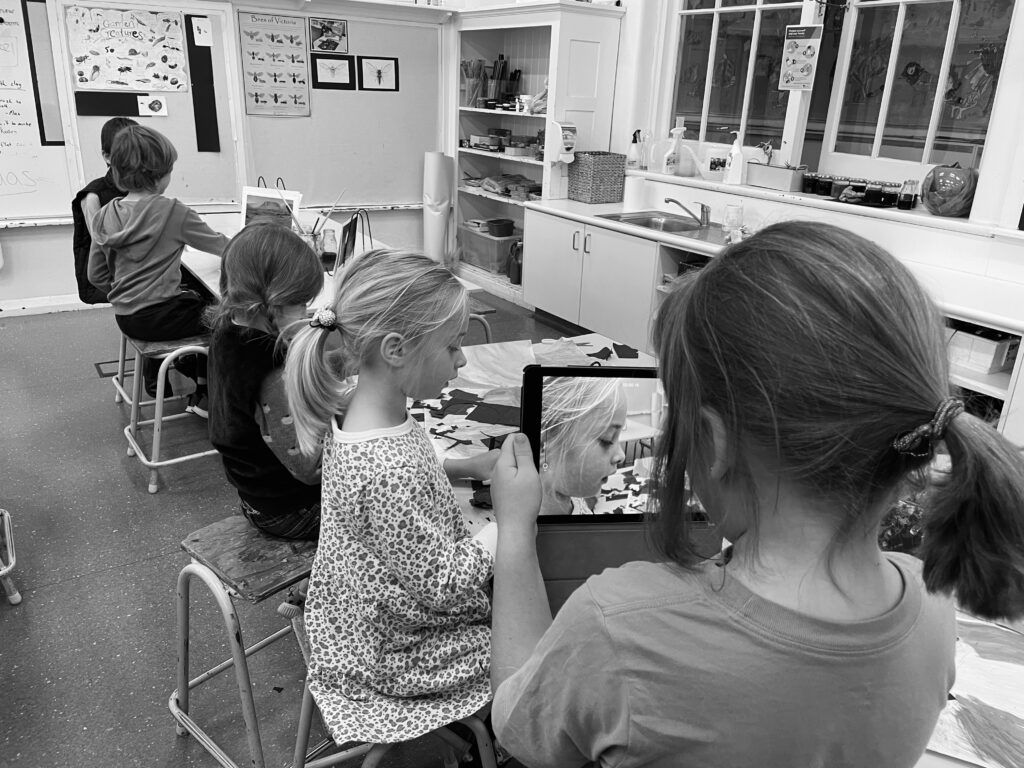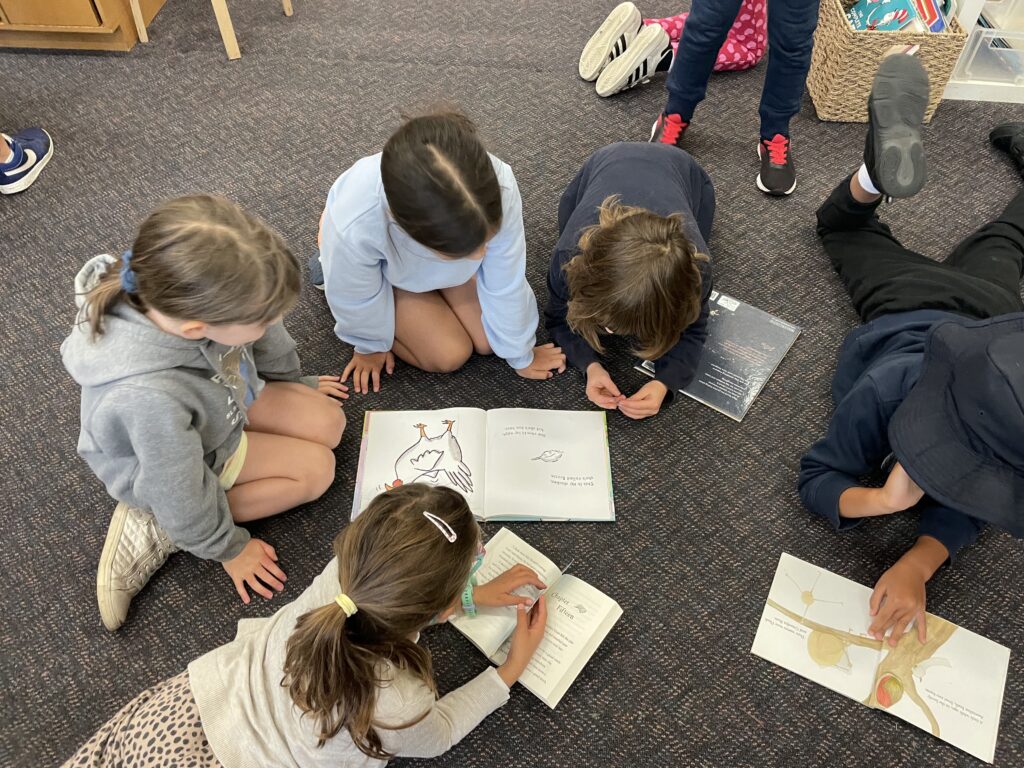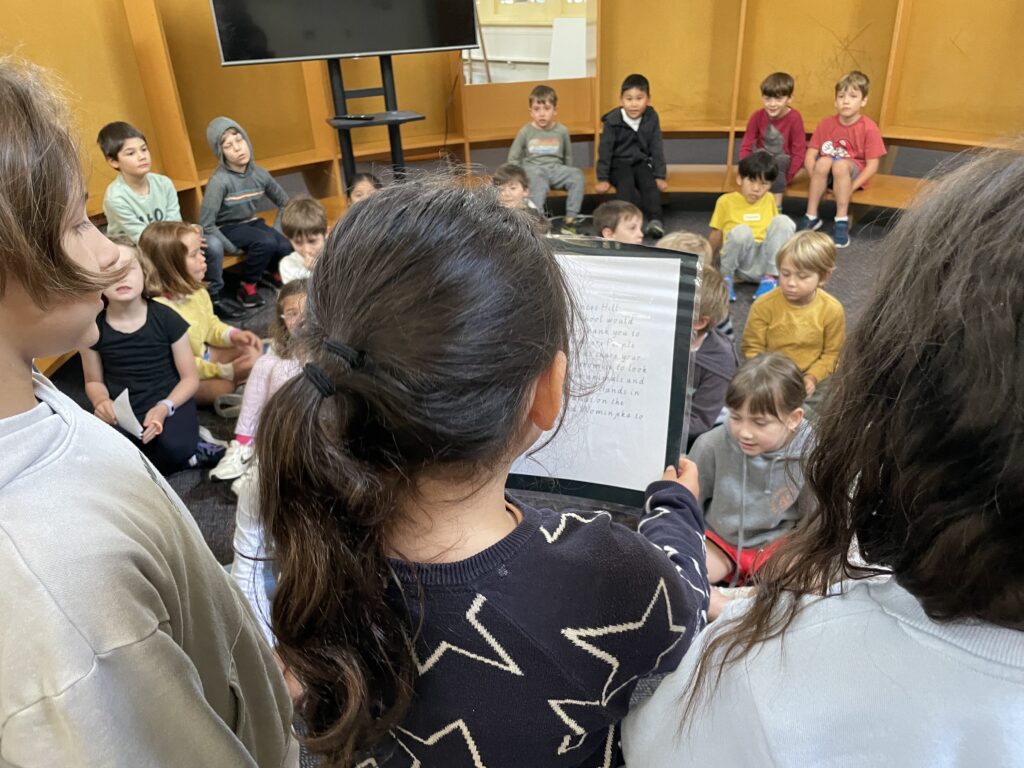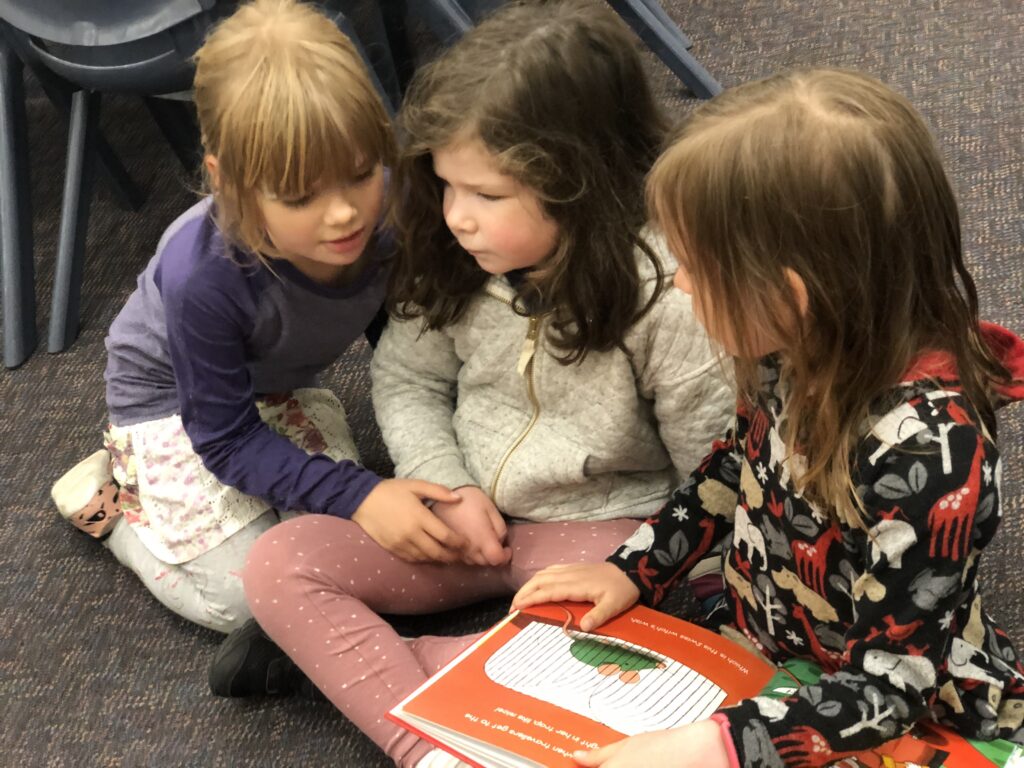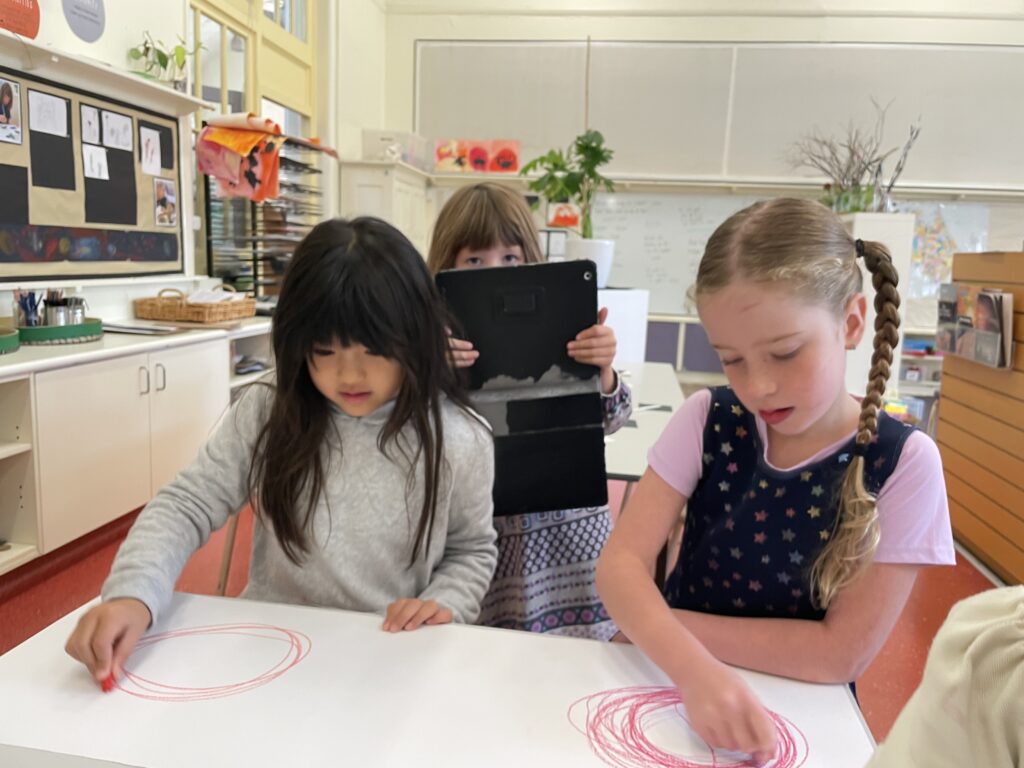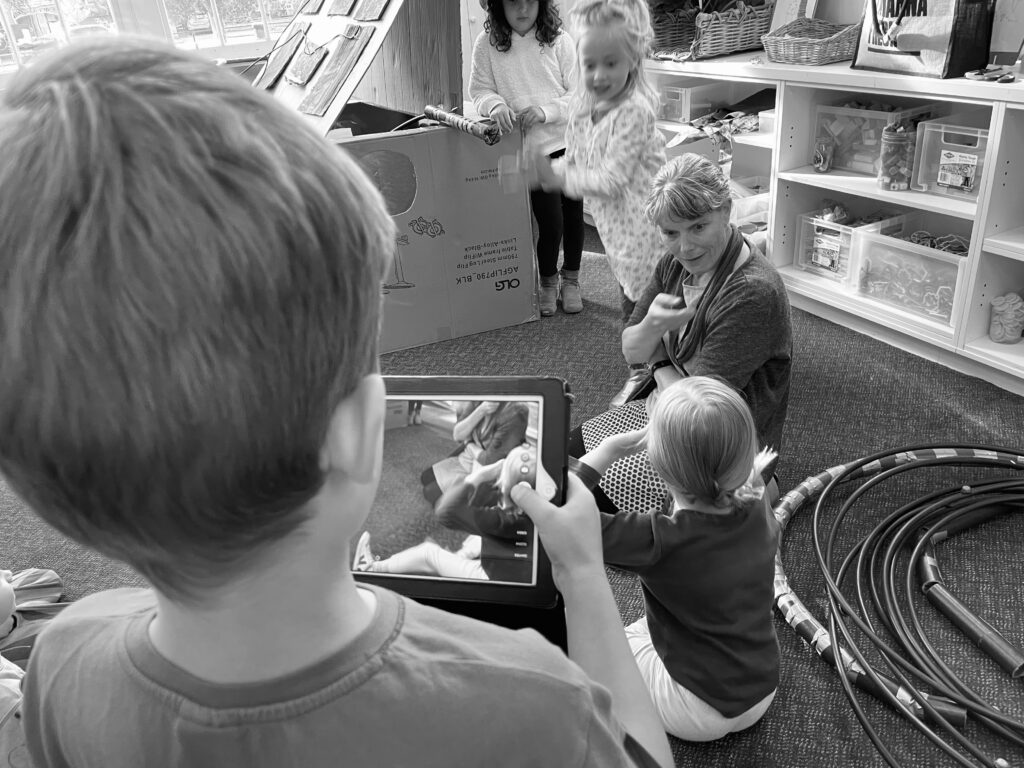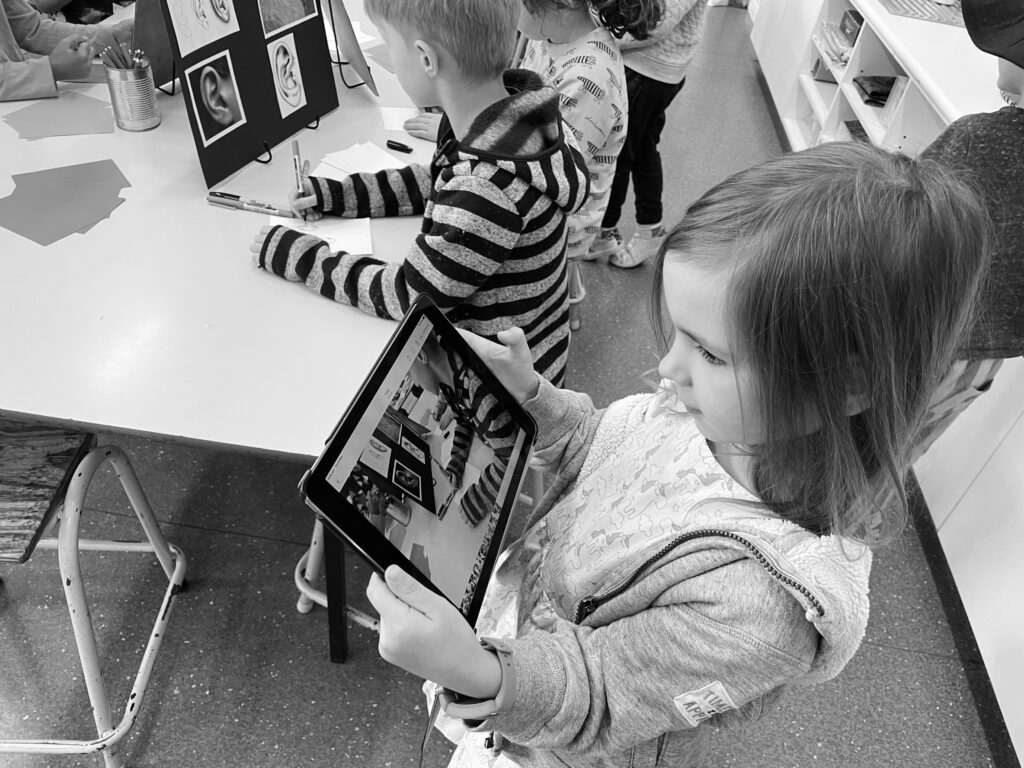Throughout the term authentic writing opportunities have been afforded to the children in multiple ways. This has meant that in the last two weeks an explosion of authentic literacy has emerged from the students. When the students were prompted with the question “why do we write?” they responded
We write to tell stories – Elise
You can write about your day – Eddie
You can write a letter and put it in the post. – Sam
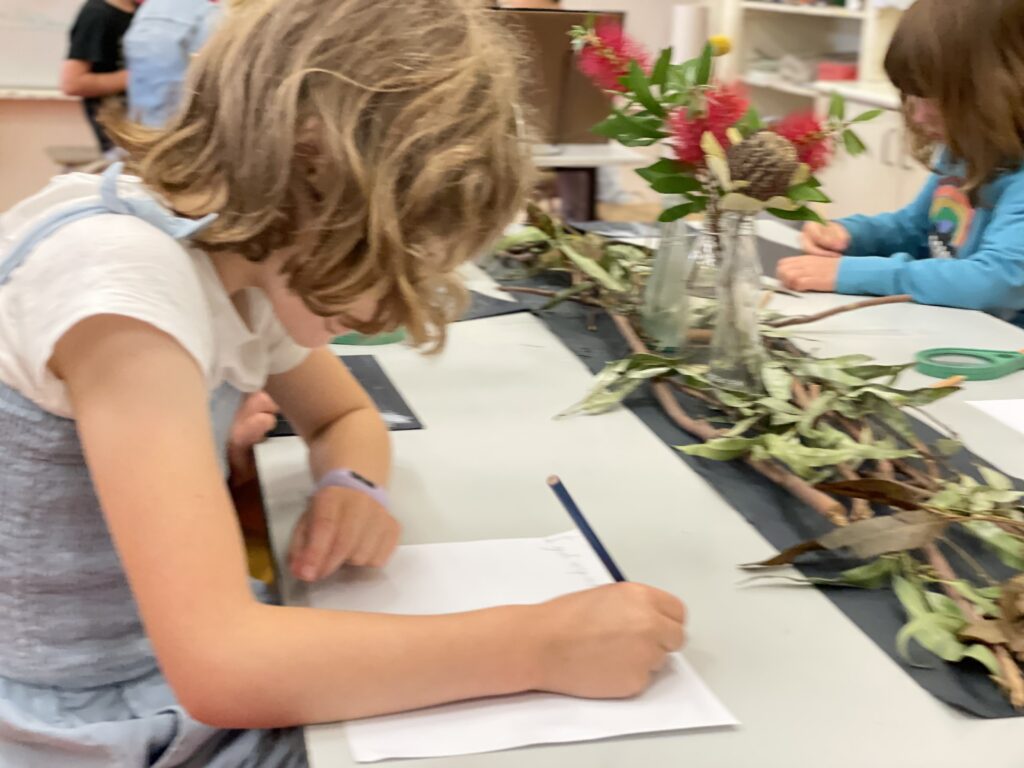
Writing after still life 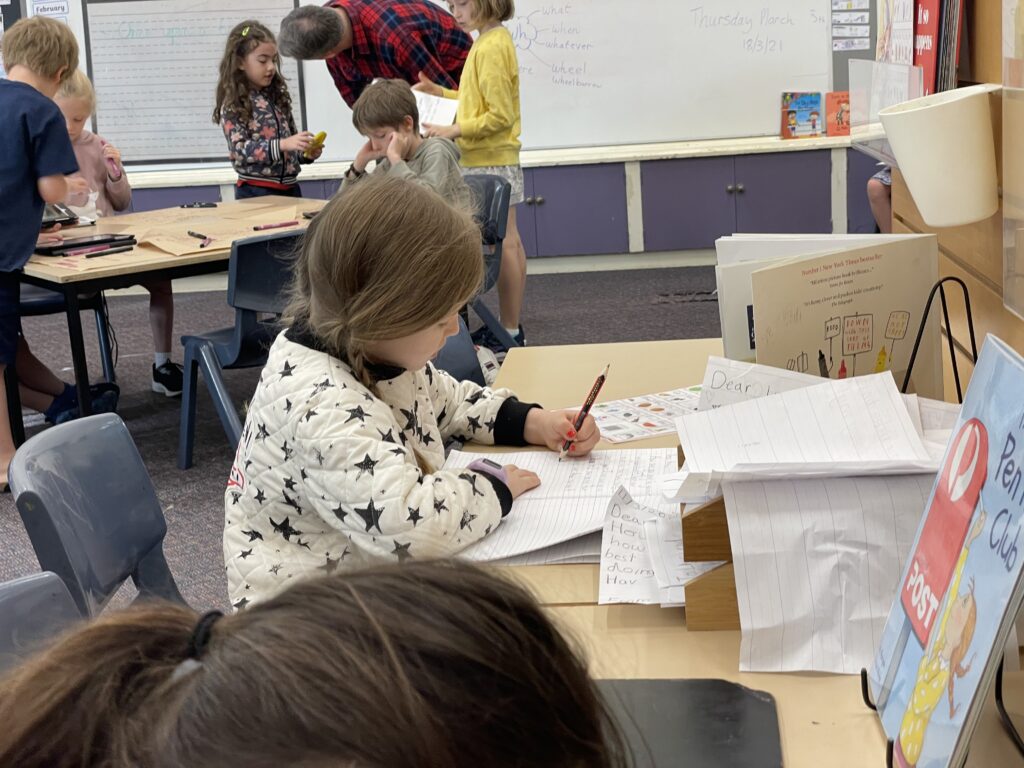
Story Creating 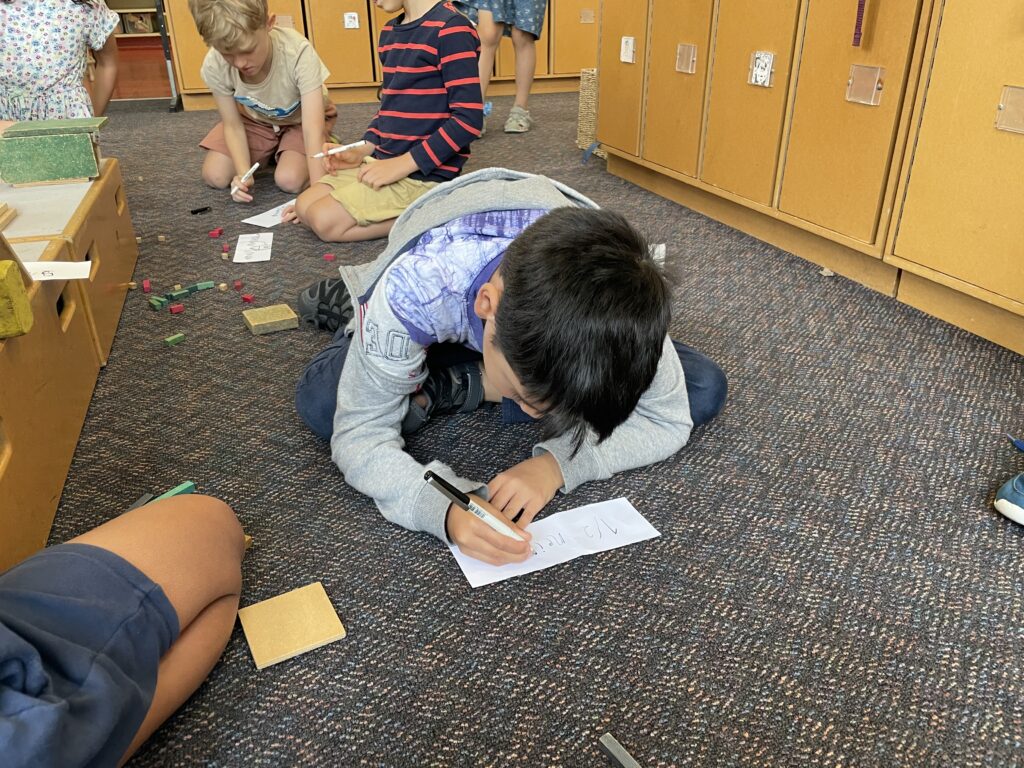
Creating Labels 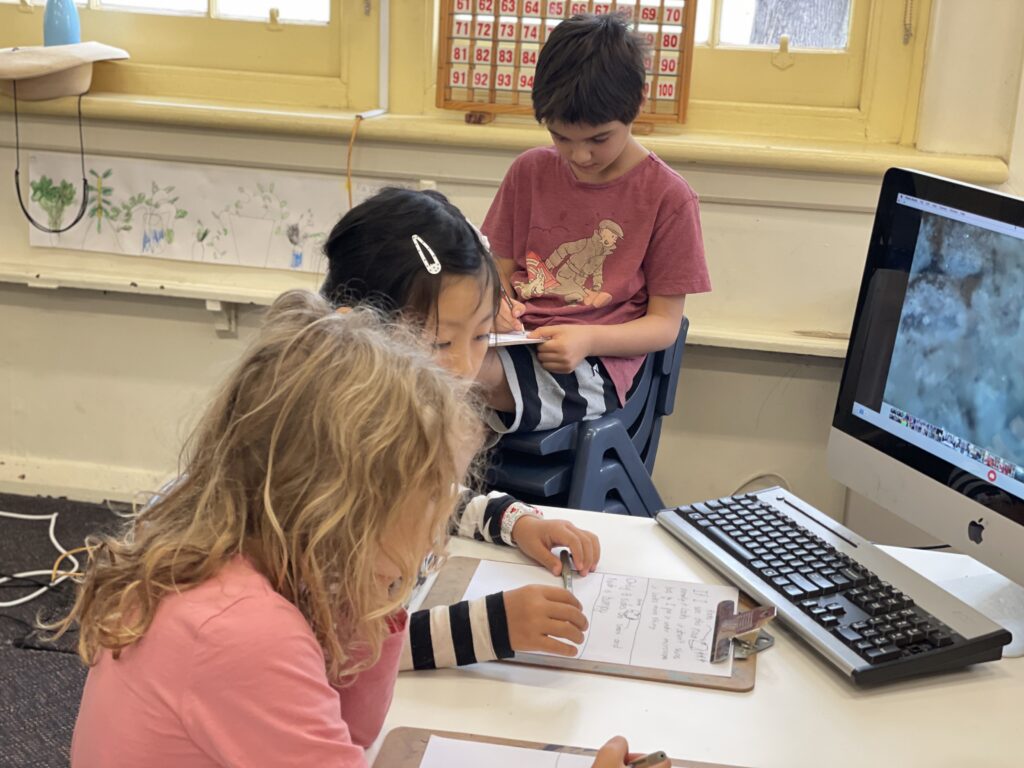
Documenting information
Along with writing for story telling, the children have recently begun to document themselves and others during provocations showing the connection they are making between writing, building ideas and communicating ideas.
Through this provocation the students have created their own documentation wall to give back their documentation to the peers and to further support our inquiry. This opportunity has provided multiple opportunities for children to share their writing with their community, peer teach and to continue to develop their writing skills.
I like to document what other people have been doing by writing it down – Niamh
I write because it is interesting and fun! – Maggie
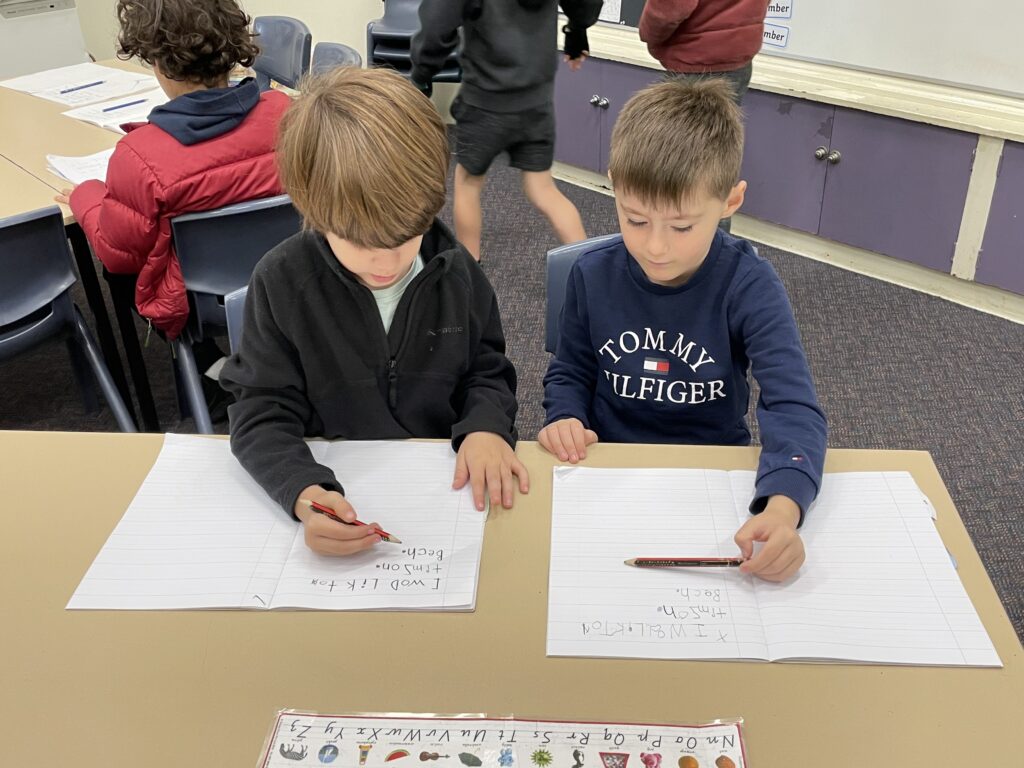
Peer Teaching 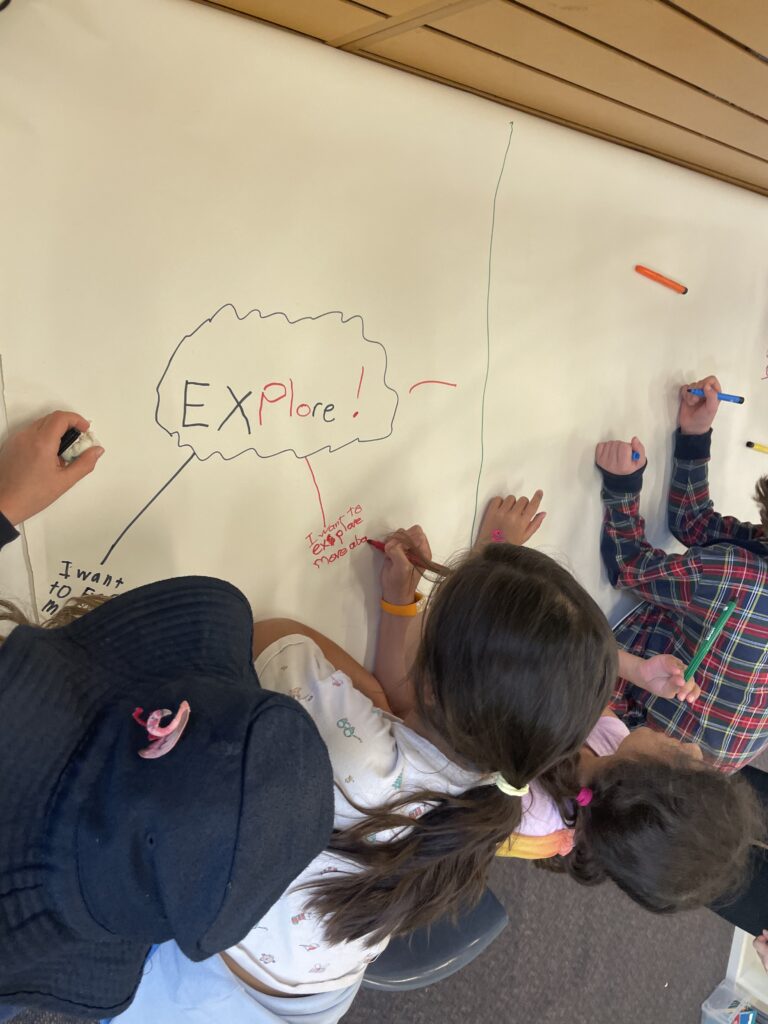
Collaborative Documentation 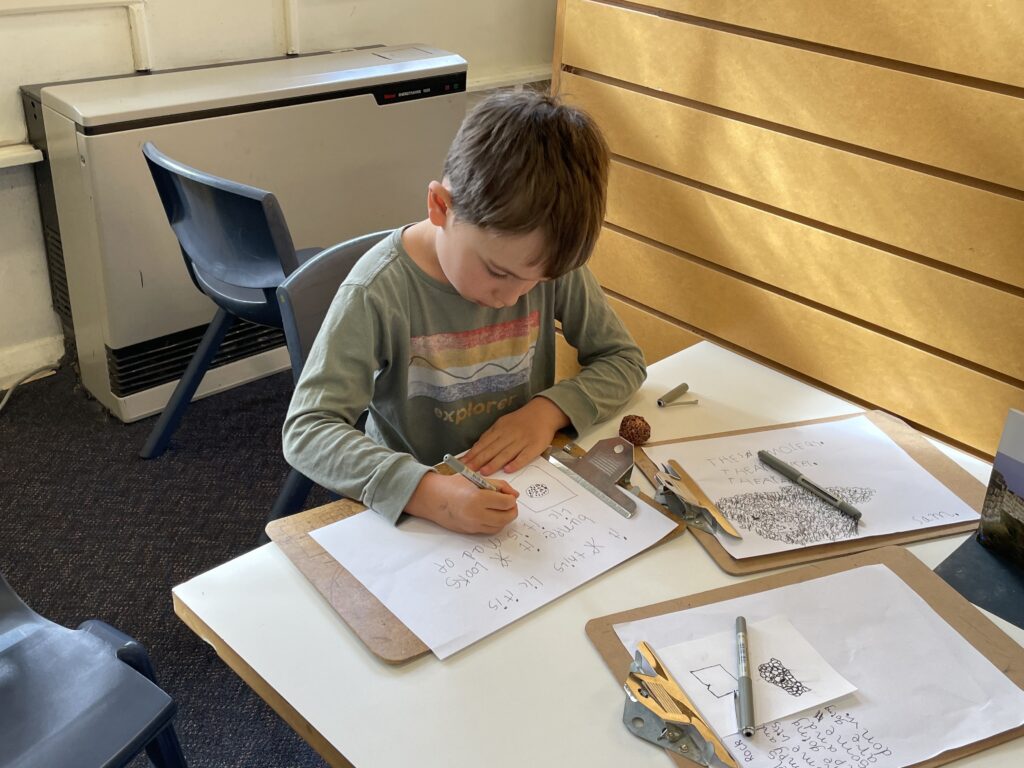
Documenting findings and discoveries 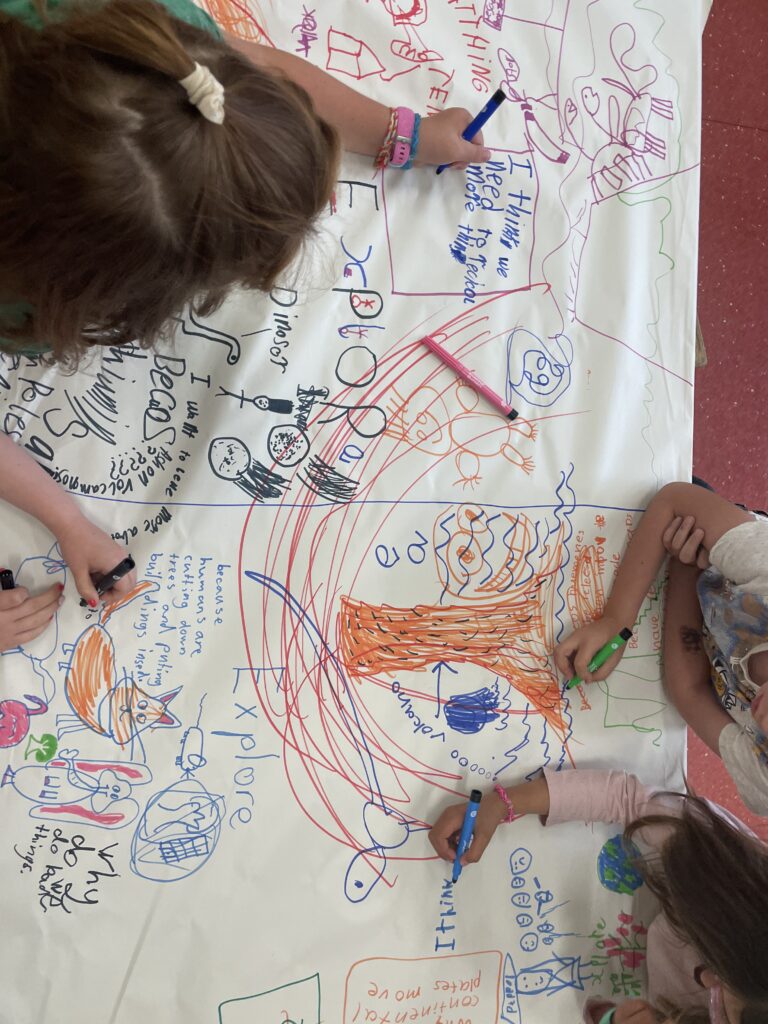
Collaborative writing 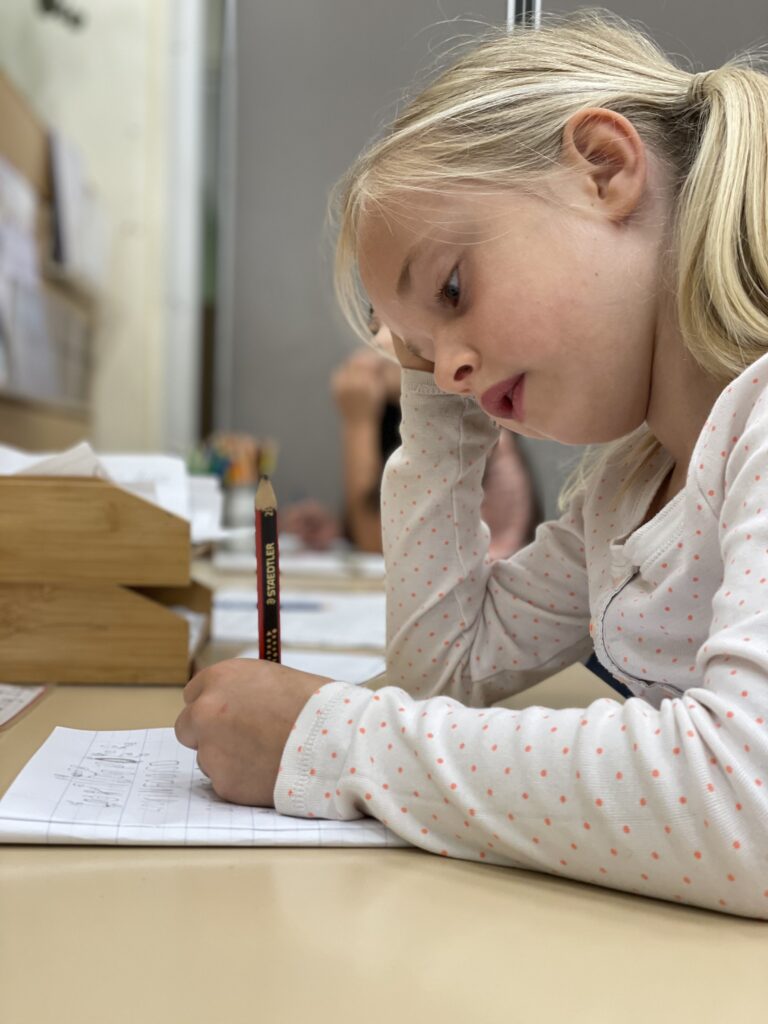
Focused writing
Through this explosion of literacy the children have found value and connection to their personal writing goals. These goals were co created with their home group teachers and have allowed the students to focus on the craft of writing. This has been evident throughout the provocation time as students have been self editing their work using resources such as dictionaries, word walls, theories and each other.
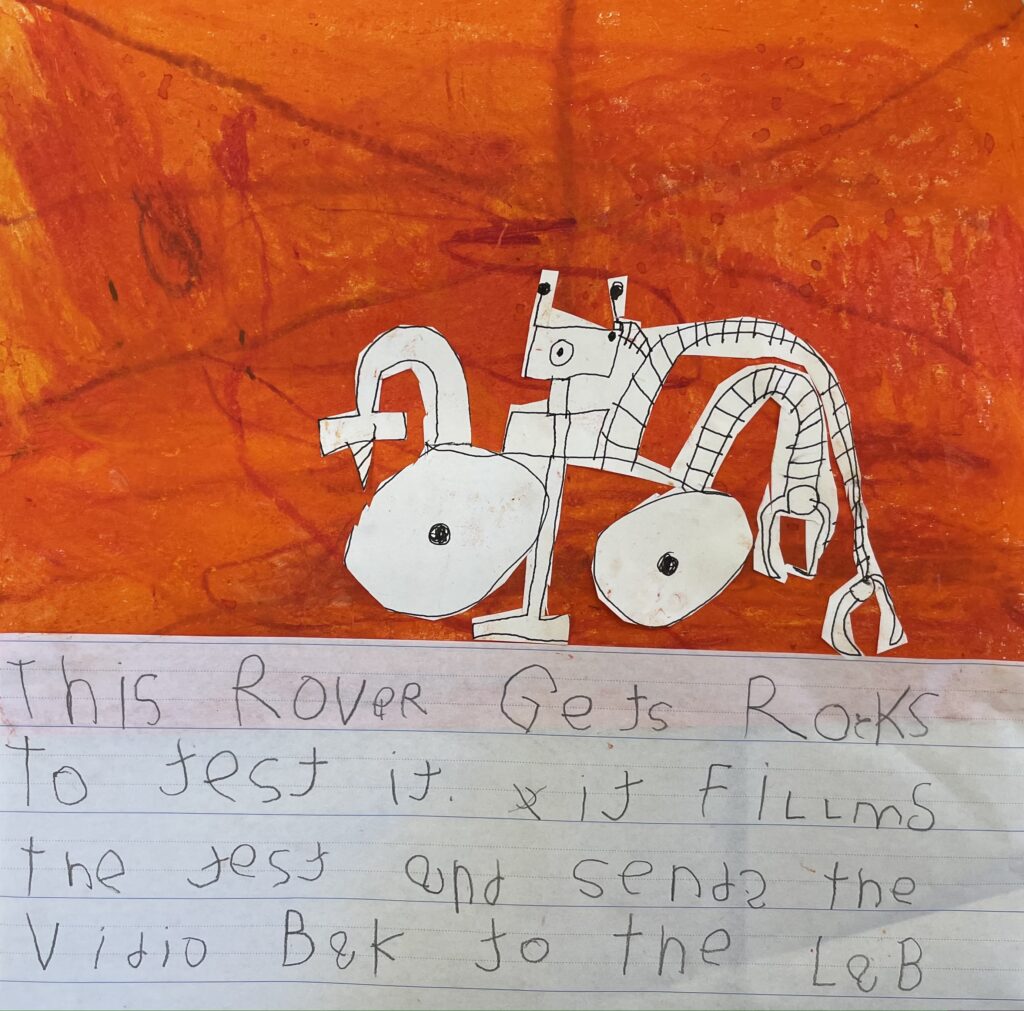
Provocation Writing 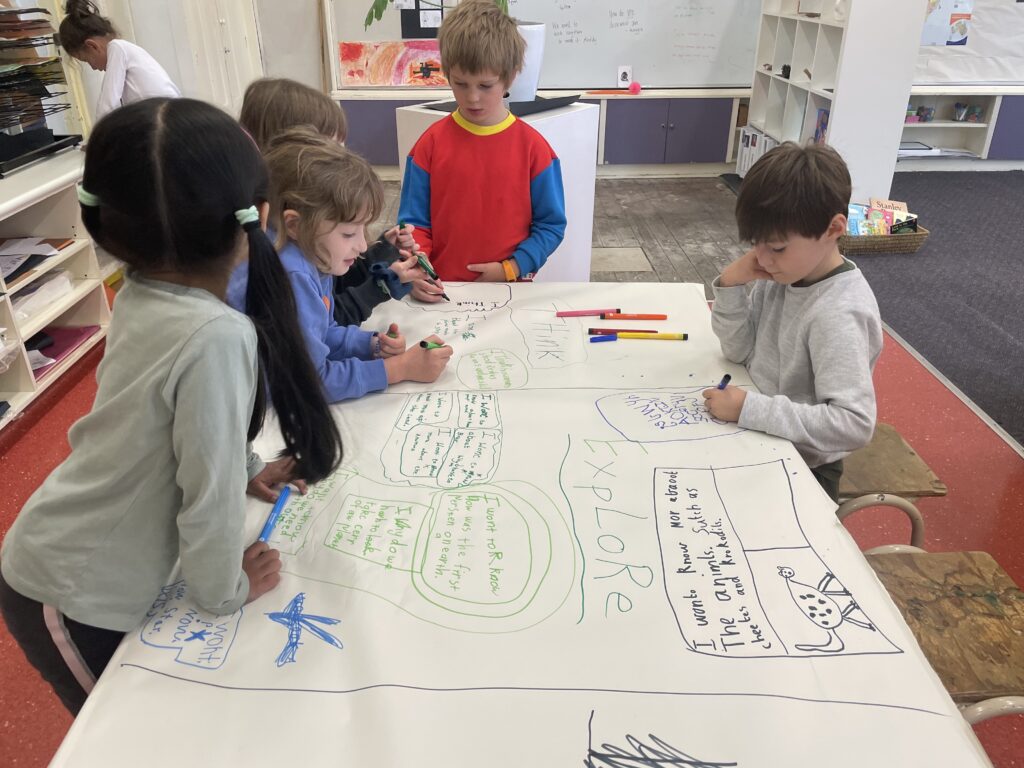
Collaborative Writing 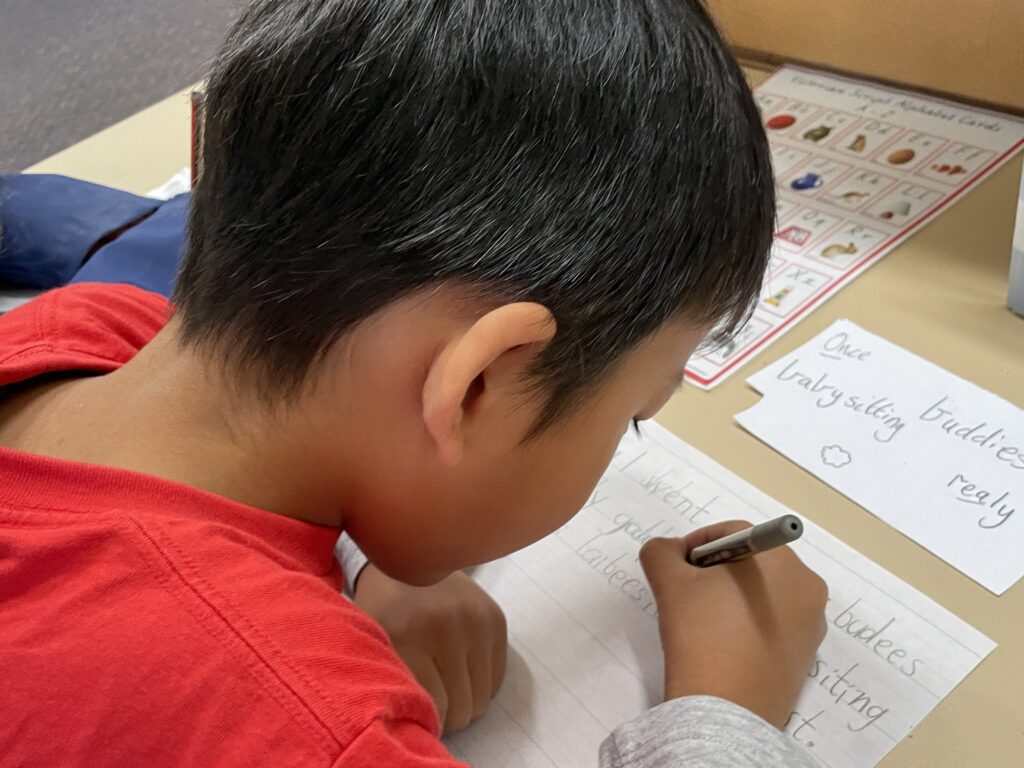
Letter Writing 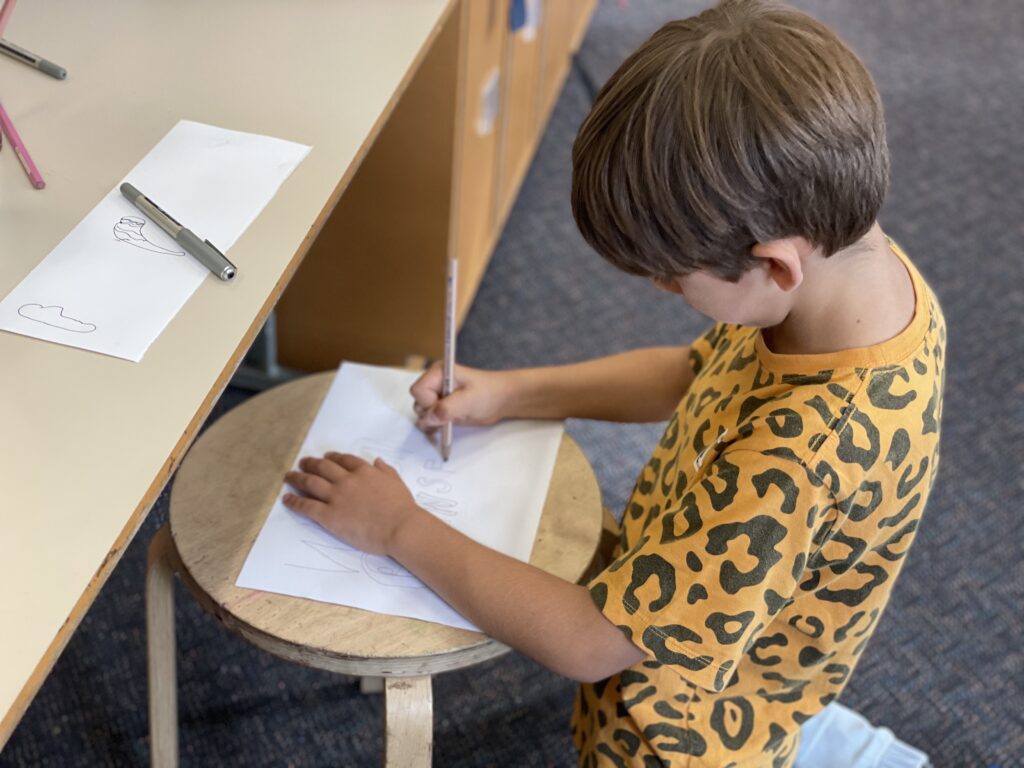
Labeling construction 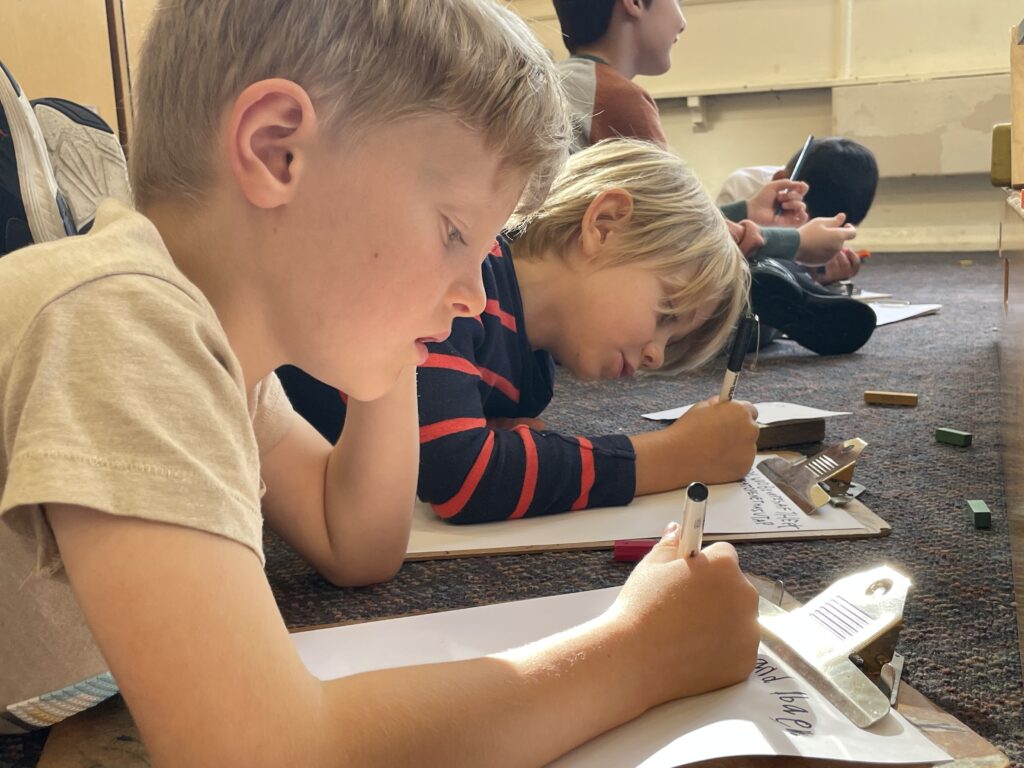
Documenting Construction 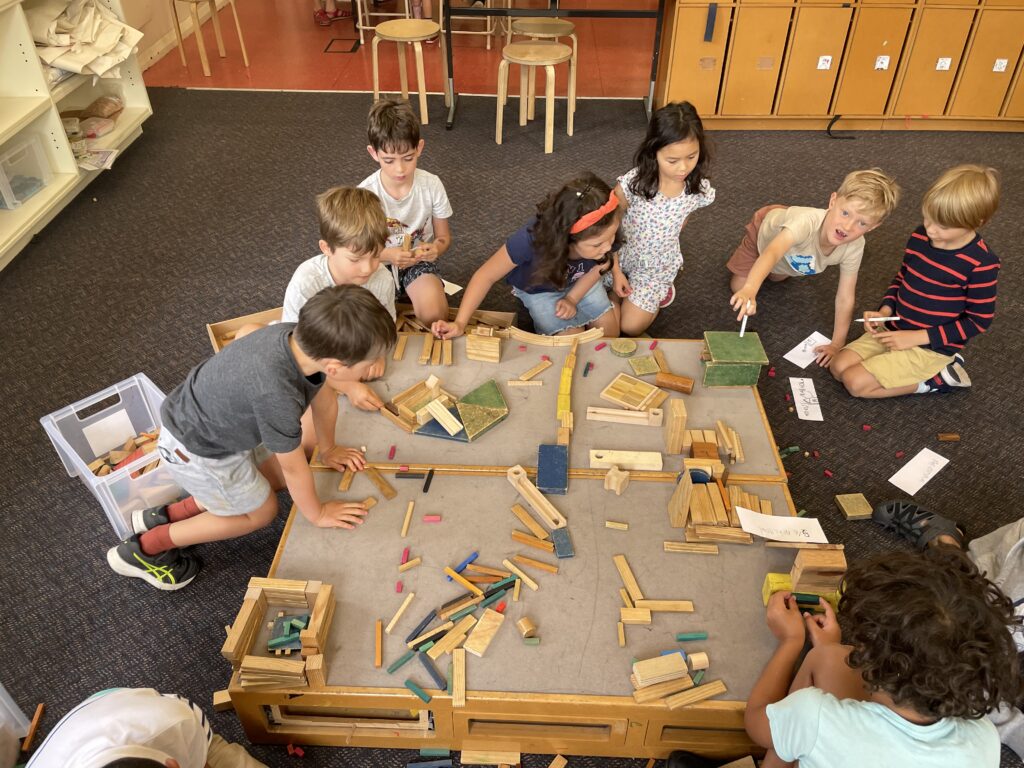
Creating Labels 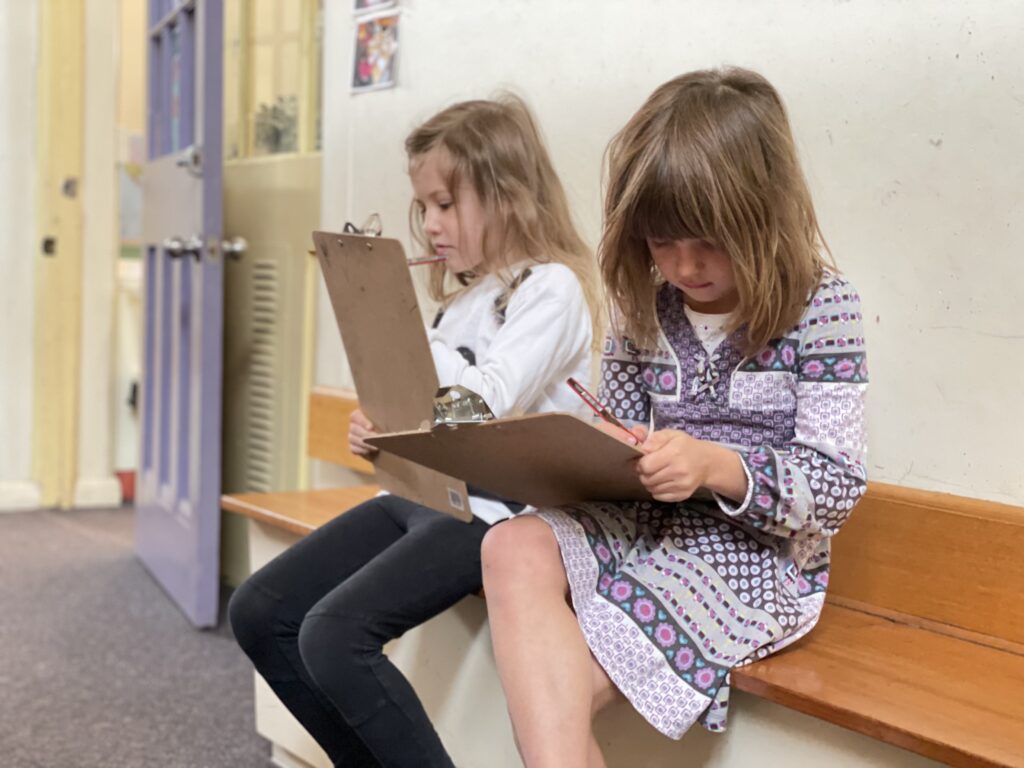
Documenting Learning
We will continue to provide these authentic opportunities for students to share their learning through writing and are excited to look for ways that this documentation can be purposefully shared with our wider learning community.
